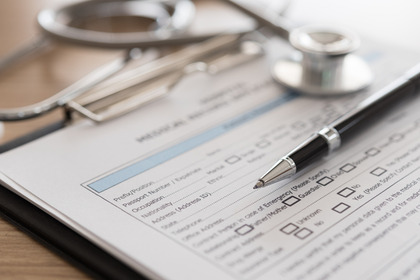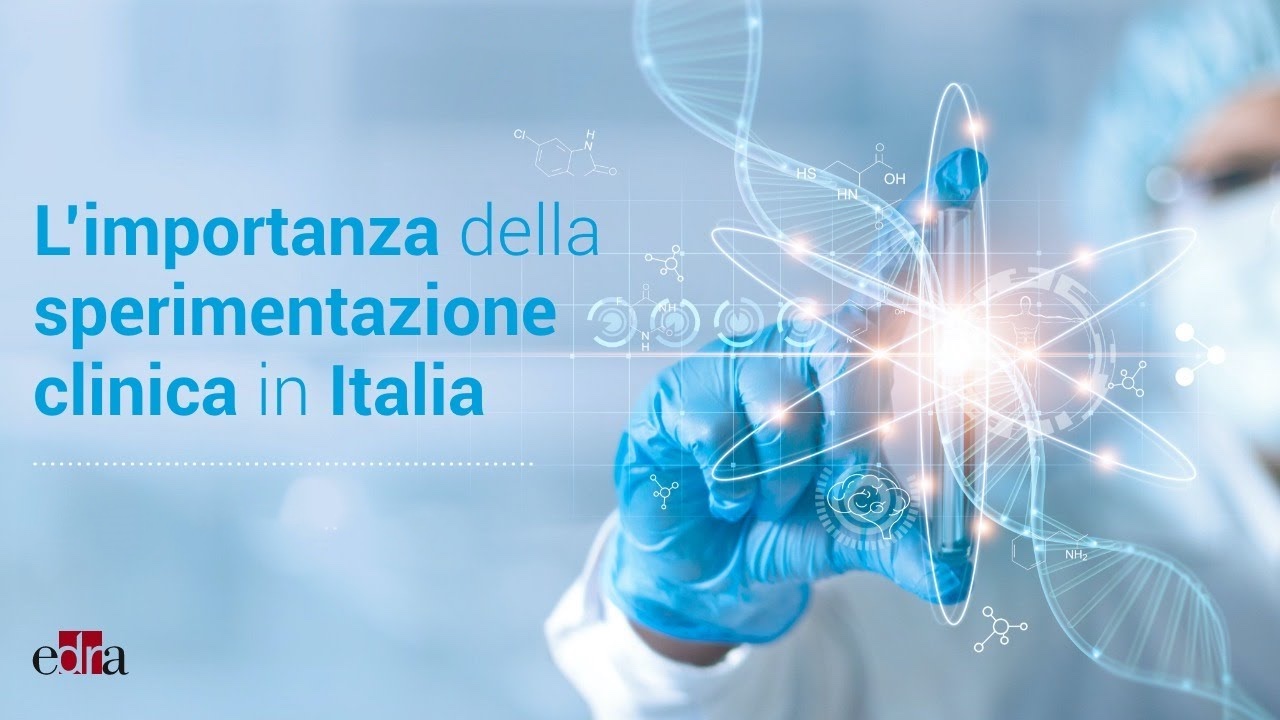Participating in a clinical trial offers significant benefits. What is missing, however, is the awareness of this opportunity. Patients and caregivers increasingly protagonists
Fondazione Veronesi – 14 dicembre 2021
If there's one thing we've touched during this pandemic, it's the little knowledge by the Italians in the context of the clinical trials of drugs. L’aggettivo “sperimentale” sta assumendo sempre più un’accezione negativa anche se, in realtà, è grazie alla sperimentazione clinica se l’aspettativa di vita si è allungata, se si sono scoperte nuove cure e se, in ultima analisi, la medicina progredisce. Questa reticenza nei confronti della sperimentazione ha a che fare con una scarsa cultura e, aggiungiamoci, anche un po’ di stigma. Da noi chi partecipa a uno clinical study he is seen as a "Big Pharma guinea pig" and instead the numerous advantages, for himself and for the system, of experimentation are not grasped. Because, in essence, of clinical trials you have confused ideas. In the last ten years, at European and Italian level, various realities have arisen that promote knowledge of scientific research among citizens and patient associations are showing themselves to be increasingly active and eager to participate in the research. But there is still a long way to go.

And not only the patients, but also those who govern us. The Stamina case it will remain in the history of our country not only as one of the greatest scientific fraud degli ultimi tempi, ma anche per come è stata gestita a livello parlamentare, nonostante la contrarietà di tutta la comunità scientifica: «Con il caso Stamina ho capito che questo paese andava aiutato, perché il parlamento e chi ci governa non può non sapere – rammenta Dominique Van Doorne, medico endocrinologa e presidente of the EUPATI Expert Patient Academy (ADPEE)– and the pandemic has convinced me even more that the citizens of experimentation and research know very little about it. Let's take the example of vaccines antiCOVID: even if we have high rates of vaccination does not mean that this is due to a full understanding of science. Many people have been vaccinated even if they are undecided or fearful ».
And this despite sui vaccines has been activated the most extensive pharmacovigilance of history: ne sappiamo di più su questo vaccino che su altri già noti da tempo, ma su cui non si è mai attivata una sorveglianza di questa portata. «Ecco perché è importante sapere come funziona la sperimentazione clinica – riprende Van Doorne – perché si saprebbe che la prima cosa che viene testata è la sicurezza del farmaco, prima ancora della sua efficacia. Prima di passare alla fase in vitro si usa il computer e si analizzano le varie interazioni delle molecole a livello computazionale. Dopo si passa all’analisi in vitro, poi su quella animale e infine quella clinica (sull’uomo)». Conoscere come funziona la sperimentazione aiuta a cUnderstand how search works, medicine and, ultimately, how medicines are made. Knowing is the first step in eliminating doubts and fears and in becoming increasingly aware of one's own well-being. This is why various realities have arisen, such as EUPATI and ECRAN, which aim at the empowerment of the patient and the caregiver, increasingly important interlocutors in the field of clinical trials.
THE EUPATI AND ECRAN PROJECT
The European Patients' Academy on Therapeutic Innovation (EUPATI) was founded in 2012 on the initiative of the Innovative Medicines Initiative (IMI), a public-private partnership between the European Commission and EFPIA (the association of pharmaceutical industries in Europe) which has the to develop new treatments and treatments. EUPATI's mission is to give citizens a better understanding of how medicines development works and how they can be actively involved in the process. Becoming experienced patients and caregivers, these subjects can interact in an authoritative way with regulatory authorities, research representatives and institutions. EUPATI arrives in Italy with the EUPATI Expert Patient Academy, founded in 2014 in Rome which every year since 2018 organizes an annual course, with free access, aimed at patients and caregivers and created with the support of AIFA, the patronage of the Institute Superiore di Sanità and with the non-conditioning contribution of pharmaceutical companies. In 2014 the ECRAN project was born - European Communication on Research Awareness Needs - funded by the European Community to improve the knowledge of European citizens on medical research and support their participation in independent clinical trials. ECRAN intends to provide clear and reliable explanations of basic and advanced concepts, practical information, educational content such as guides, tutorials, films and even games to help citizens make an informed choice when deciding to participate in a clinical study. The project coordinator is the Mario Negri Institute in Milan. ECRAN is currently paused, but the site is still accessible.
Understand how the experiment works clinic removes stigma, fear, reticence and allows you to understand their advantages. One above all: the possibility of being able to access innovative treatments. For those suffering from rare diseases, for example, participating in clinical trials can be a way to access otherwise inaccessible treatments. For women affected by ovarian cancer, another example, joining trials represents the only possibility of participating in the improvement of treatments. But although more than half of the patients are in favor, only one in ten women are offered to participate. He revealed it Research inActo, a study promoted by the patient association Alliance against the ovarian cancerACTO-ONLUS and conducted by the Mario Negri IRCCS Institute of Milan which involved 359 patients. About six out of ten women know what a clinical study is, but only 34.9% knows how it is carried out. And it is almost always the doctor who proposes to participate, and he does so only in 12% of cases. In this sense, patient associations are assuming an increasingly decisive role in providing support to facilitate participation in trials. The other advantages of experimentation concern the possibility of be thoroughly examined and this brings benefits not only for patients (who can receive a complete check-up that otherwise would have taken months to obtain) but also for the national health system, given that the costs of the trial are borne by those who sponsor them (in most of cases, pharmaceutical companies) and a thoroughly controlled person, thanks to the clinical study, will certainly turn less to the NHS.
IL RUOLO DELLE SOCIETA’ SCIENTIFICHE
Patient organizations can do a lot, but not everything. In this path of continuing education of patients and caregivers, a decisive role must also be played by scientific societies. Some of these, such as the FADOI (Federation of Associations of Hospital Internist Managers) have collaborated with ADPEE, to produce an important document entitled "Inside Research: the Person first of all - A proposal in 10 points", signed by over 200 Scientific Associations, IRCCS, Ethics Committees, Citizens and Patients Associations and intended for the world of research and institutions to propose ten recommendations
«Il tema è importante e dobbiamo attivarci, come ha fatto EUPATI – ha concluso Gussoni – anche perché il paziente deve essere parte attiva del disegno della sperimentazione: noi ricercatori spesso attiviamo gli studi sulla base di ipotesi accademiche, non guardando ai reali bisogni dei pazienti. Dovremmo considerare invece di più i patient reported outcome, così come le esigenze logistiche dei pazienti: le sperimentazioni di domani saranno sempre più organizzate al patient's home, through tools such as telemedicine". But to obtain an active participation of the population, it is first necessary to train them on the importance of clinical trials.
SOURCES
Related news: AIFA. Clinical trials of drugs
Gli elaborati riportati rappresentano pareri, interpretazioni e ricostruzioni anche soggettive e non necessariamente condivise dalla redazione. Pertanto, le responsabilità delle dichiarazioni sono dell’autore e/o di chi ci ha fornito il contenuto. Il nostro intento è di fare informazione utili per gli informatori scientifici e di divulgare notizie di interesse pubblico. Naturalmente invitiamo i lettori ad approfondire sempre l’argomento trattato, a consultare più fonti e lasciamo a ciascuno di loro la libertà d’interpretazione. Il materiale reperito in rete, ove non dichiarata già nel sito la dicitura di copyright e i diritti di utilizzo, è stato in buona fede ritenuto di pubblico dominio. Alcuni testi citati o immagini inserite in questo sito sono tratte da internet e, pertanto, considerate di pubblico dominio; qualora la loro pubblicazione violasse eventuali diritti d’autore vogliate comunicarlo via e-mail per provvedere alla conseguente rimozione o modificazione.
